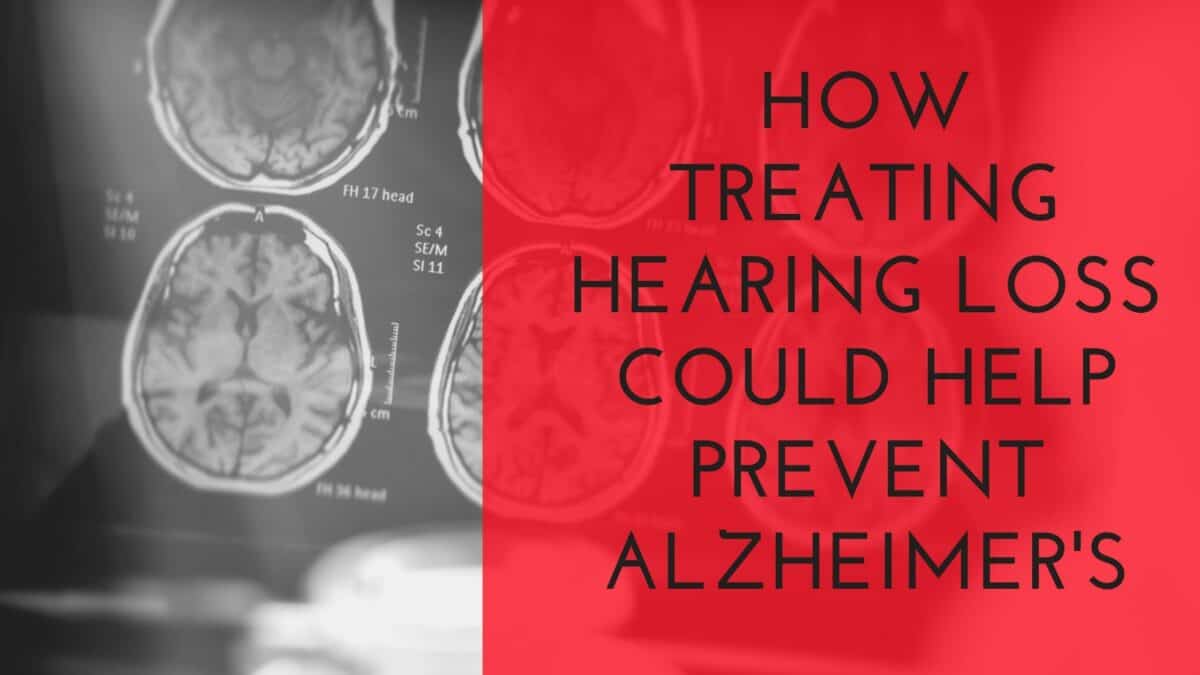Alzheimer’s is a medical condition that takes a toll on cognitive functions. It is the most common type of dementia, accounting for 60%-70% of the dementia people experience today. According to the Alzheimer’s Association, an estimated 6.2 million people in the U.S. live with Alzheimer’s. This number is expected to significantly increase, reaching 12.7 million by 2050. Because Alzheimer’s is a permanent medical condition that reduces cognitive capacities, identifying risk factors that can be adjusted to prevent its development is critical. Extensive research shows that treating hearing loss can reduce the risk of experiencing cognitive decline, preventing the onset of conditions like Alzheimer’s.
Link Between Hearing Loss & Cognitive Decline
Several studies show a correlation between hearing loss and cognitive decline – highlighting that impaired hearing can contribute to cognitive decline and the development of associated conditions like Alzheimer’s. This includes a major study that was published in the Journal of the Alzheimer’s Association in 2019. To study the link between hearing loss and cognitive decline, researchers assessed the hearing and cognitive capacities of 10,107 people. Participants did not have any cognitive impairments when the study began. After collecting data for 8 years, researchers found that cognitive decline was:
- 30% higher for people with mild hearing loss
- 42% higher for people with moderate hearing loss
- 54% higher for people with severe hearing loss
These findings highlight that hearing loss can significantly increase the risk of experiencing cognitive decline. Also, the severity of hearing loss translates into a greater risk of this impact on the brain.
Impact of Hearing Loss on Brain Health
How exactly does hearing loss affect brain health? It is important to understand that hearing doesn’t just happen in the ears but also in the brain. There are specific areas of the brain that are responsible for processing auditory information that comes from the ears. So when hearing loss is present, these portions of the brain are also impacted in the following ways:
- Brain atrophy: the parts of the brain that manage speech and language comprehension receive less sound information, causing these areas to become less active. This inactivity also means less stimulation and engagement which can cause these areas to shrink, reducing cognitive capacities.
- Cognitive overload: because the brain receives less auditory information from the ears, this forces it to exert more energy in attempting to hear and understand sound. Other parts of the brain try to intervene to also process sound. Over time, this additional effort and energy can result in fatigue as well as cognitive overload which also affects cognitive functions.
- Social isolation: a common outcome of untreated hearing loss is social withdrawal. Communication becomes strained due to symptoms, making conversations challenging to navigate. People often avoid conversations altogether which means skipping out on social events and spending less time with family and friends. This contributes to depressive symptoms – isolation, loneliness, stress, etc. This impacts both mental health as well as brain health. Social withdrawal results in less activity, engagement, and stimulation for the brain which can also affect cognitive capacities.
Over time, hearing loss’s effect on different areas of the brain can contribute to cognitive decline. This increases the risk of developing conditions like Alzheimer’s. Fortunately, intervening and addressing hearing loss can profoundly change this trajectory.
How Hearing Aids Prevent Alzheimer’s
Treating hearing loss provides numerous life-changing benefits including improving brain health. Several studies show that hearing aids, the most common treatment for hearing loss, strengthen cognitive functions. This includes:
- 2020 Study Published in Science Daily: researchers evaluated the hearing and cognitive capacities of nearly 100 participants (ages 62-82) before the use of hearing aids and 18 months after wearing hearing aids. Researchers found that “97% of participants showed either clinically significant improvement or stability in executive function (mental ability to plan, organize information and initiate tasks)”.
- 2018 Study Published in the Journal of American Geriatrics Society: researchers assessed data on the cognitive abilities of over 2,000 people who wore hearing aids. After evaluating results from memory tests, researchers found that wearing hearing aids improved scores. They concluded that hearing aids can be an effective way to reduce the risk of cognitive decline.
Treating hearing loss can transform your health and wellness, helping you live a fuller life. Contact us to learn more and to schedule an appointment for a hearing consultation.

